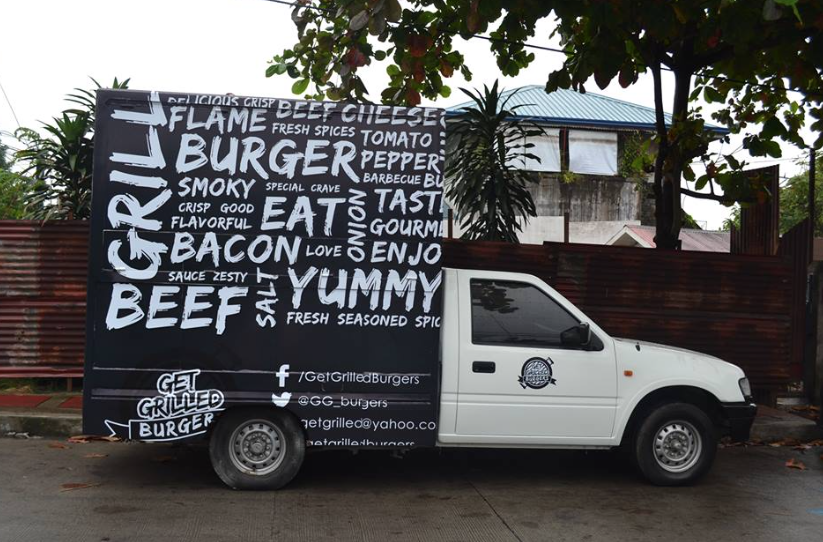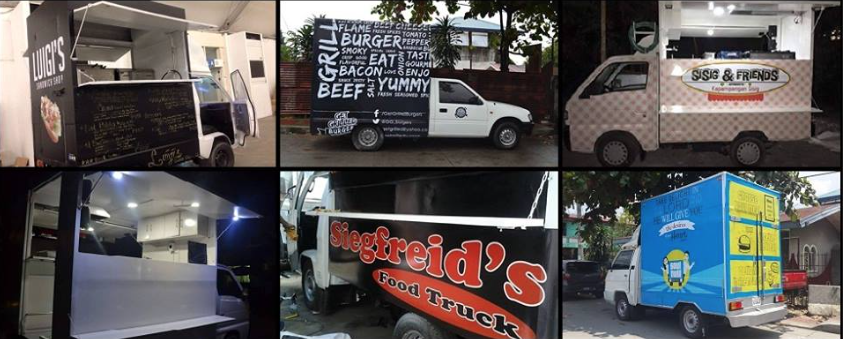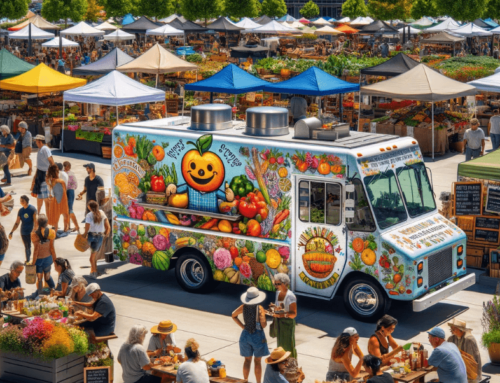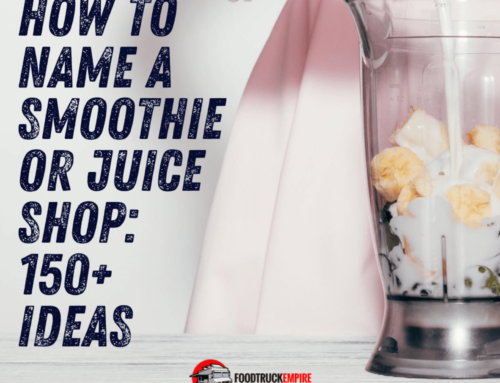The Philippines has a rich history of street food that’s served from carts, pop-up stands, trucks or sometimes little more than a cooking pot and an open flame. These street foods range from sweet desserts like Halo-Halo, which contains shaved ice, evaporated milk, and a mixture of seasonal fruits. Other vendors serve more traditional street-meat meals like Lechon Manok, a roasted chicken on a stick.
If you’re interested in learning more about the street food served in this country check out the 30 Must Try Dishes at BKPK.me. As you’ll see the vendors in this country are extremely creative with the food their able to produce in small spaces and with minimal cooking equipment.

Examples of Various Philippine Street Food Dishes. Photo Credit: BKPK.me
If you’re living in the Philippines currently and considering starting this type of food business, we are here to help and had the opportunity to speak with Kay Estella, co-owner of the food truck fabricator Bontella Food Truck Builders Phillippines. Kay understands the process of starting a food truck inside and out as her company has helped many current food truck owners get started in the business. Kay was kind enough to provide detailed responses to some of our questions about launching a food cart in the Philippines and points out some of the unique challenges that successful vendors must overcome.
Kay Estella: BONTELLA FOOD TRUCK BUILDERS PHILIPPINES is the country’s first and only truck body fabrication company that has expertise on food trucks and other mobile businesses. The company aims to provide quality and affordable mobile businesses especially to starting entrepreneurs, employees who want to start their own companies, OFWs, and ordinary Filipinos. The truck body builder, founded in August 2015 by business partners Donnae Bonquin and Gervie Kay Estella, is located in Sampaguita Street, Camarin, Caloocan City, near SM Fairview and Caloocan City Hall North.
FTE: What do you need to do to start a food truck business in the Philippines?
Kay Estella: Food truck owners tend to get confused as to what rules or laws to follow on operating their food trucks because the food truck industry is still very new in the country and there are still no fixed laws or ordinances that are being issued. The heavy traffic in Manila is also a major concern for many food truck owners who want to constantly operate from one place to another.
Entrepreneurs may visit their respective city halls to know what type of business permits they should get. As with our discussion with long-time food truck owners in the country, the same permits are required as that of other businesses such as barangay permit, mayor’s permit, BIR and SEC/DTI. Our clients who are food truck owners get permits from each barangay where they intend to operate.
FTE: What tips do you have for individuals that would like to start their own mobile food business?
Kay Estella: My advice to those who want to operate their own food trucks is to go to the provinces. Because traffic is a lot more light in the provinces and the regulations are more lax, enabling them to travel from places to places, even to markets and near schools.
More About Food Trucks in the Philippines
One of the food trucks that Kay’s company has built in the past is Get Grilled Burgers shown in the photo below. Get Grilled Burgers serves some really good looking flame-grilled burgers with cheese, mushrooms, ketchup, mustard, or onions depending on your preference.

Side View of Get Grilled Burgers Truck.
If you are an American reading this, you may notice that the style of food trucks is different and smaller than those we usually see in the United States. Part of the reason for this is that the major cities like Manilla is densely populated. As a result, these food truck vendors need a smaller truck that can move around more easily and be parked in a smaller spot. They can also be built more affordably.

A variety of food trucks in the Philippines.
With that being said if you have less space on a food truck that means you’ve really got to be hyper selective about your menu. Food truck vendors in this country need to find their niche and do it well since there is only so much space on the vehicle to store food and cooking equipment.




